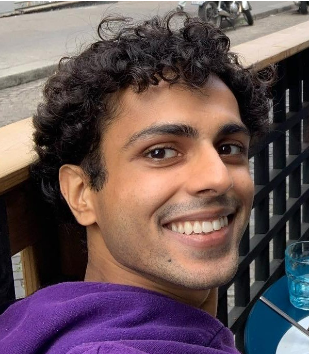Inclusion Health had never been a subject I knew much about, until I began an extended research project under the supervision of Dr Lucy Chiddick. Dr Chiddick offered something new to my previous medical education: an opportunity to explore healthcare for people experiencing homelessness. This seed of interest in Inclusion Health was further nurtured during a leave of absence from my medical degree, during which I undertook a master’s degree in Humanitarianism and Conflict Response at Manchester University.
The course was extremely varied, covering international relations, anthropology, public health, climate change and historical analysis. It also opened my mind to concepts of what constitutes personal identity, and how this interacts within society in the context of structural forces. I subsequently began applying this knowledge to encounters with patients I saw in Manchester when working as a healthcare assistant across three General Practices. Each practice served different demographics facing varying health inequities and barriers to healthcare. The opportunity to observe and actively take part in community interventions for health promotion tailored specifically to marginalised groups was invaluable, whilst also allowing me to contextualise my knowledge in real healthcare scenarios.
I found a huge amount of information and literature from differing sources, however it became clear to me that there was no one resource that collated all the necessary content…
My passion for health advocacy grew after these experiences, however I was still left with many questions. Why hadn’t my medical school instilled this passion within me to advocate for marginalised patient groups? Why hadn’t social determinants of health been contextualised in the lived experiences of individuals? Why hadn’t it been demonstrated to me that this knowledge could be actualised into health interventions to affect real change? I became curious about the societal structures homeless patients existed within and what support was available. I found a huge amount of information and literature from differing sources, however it became clear to me that there was no one resource that collated all the necessary content into a simple, digestible format for students to learn from.
Subsequently, I set out to fill this gap in the medical curriculum. I aimed to create an e-module that not only spoke on how to provide healthcare to people experiencing homelessness, but also answered the wider questions I had regarding legislation, housing systems, how people become homeless, and the non-homogenous experiences of homelessness. This information is crucial in contextualising homeless patients within structural systems of oppression that disproportionately create vulnerabilities to becoming homeless. It also counteracts widely held beliefs that homeless individuals are at fault for their situation and ill-health, instead encouraging students to become advocates for homeless patients. With the support of the experts at Pathway, and Dr Dominic Patterson who provided me with the platform to create this learning tool, I was able to complete the e-module ‘A Student Healthcare Guide to Supporting People Experiencing Homelessness’, now available on the FairHealth health equity learning website.
During my inclusion health journey, I also found many likeminded students who were similarly passionate about this content and undertaking incredible initiatives at their own universities.
I hope that this learning resource contributes to the efforts of the many other professionals and students advancing inclusion health education within the curriculum, and that it may be used not only by healthcare students, but also as a tool for educators in the design and implementation of similar teachings envisioning the improved healthcare of homeless patients. During my inclusion health journey, I also found many likeminded students who were similarly passionate about this content and undertaking incredible initiatives at their own universities. However, on the national scale these efforts were fragmented and isolated from one another. There was a missed opportunity for collaboration and resource sharing between students and professionals in the field. The Faculty for Homeless and Inclusion Health Student Network, hosted by Pathway, is a national organisation that aspires to change this. It has three primary aims: education, collaboration and advocating for inclusion health. Its committee provides a place for students, professionals, Experts by Experience, and other key workers to network and promote learning and research opportunities.
If you would like to join the Faculty for Homeless and Inclusion Health Student Network, please email us at either students.fhih@gmail.com or faculty@pathway.org.uk
